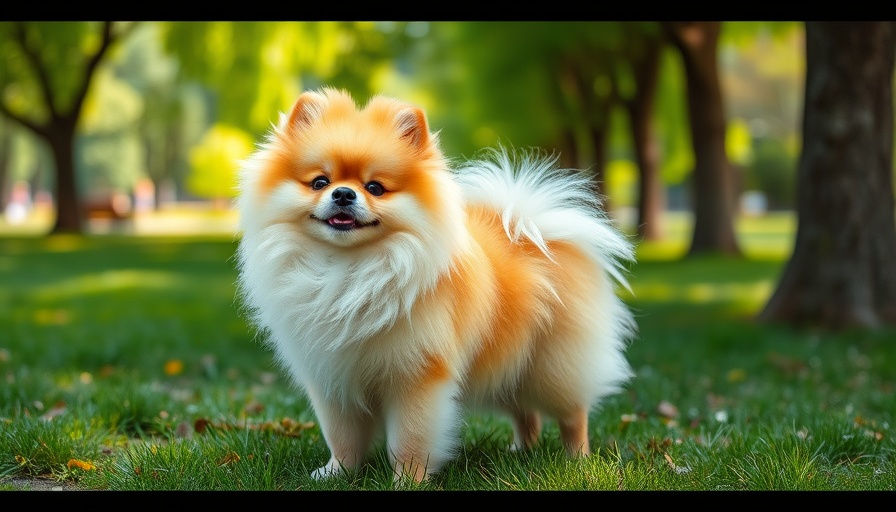
Understanding the Gallbladder's Role in Your Pet's Health
The gallbladder plays a crucial yet often overlooked role in the digestive health of pets. This small, pear-shaped organ stores bile produced by the liver, which is essential for breaking down fats and supporting nutrient absorption in the small intestine. Without a well-functioning gallbladder, pets can face a range of digestive issues that affect their overall health.
Common Gallbladder Problems in Pets
As a pet owner, it's vital to be aware of the common gallbladder-related issues that can arise. One significant condition is biliary sludge, which consists of thickened bile that can clog your pet's gallbladder. Symptoms may include jaundice, where the skin and eyes appear yellow due to liver stress. While this condition is more prevalent in older pets, it’s essential for all pet owners to understand the signs.
Weighing the Risks: What Can Affect Gallbladder Health?
Several factors can impact gallbladder health, ranging from diet to genetics. Poor nutrition, such as a high-fat diet, may exacerbate gallbladder issues. Moreover, certain breeds may be more predisposed to gallbladder disease, making it crucial to have breed-specific knowledge at your disposal. Understanding these risk factors can empower pet owners to take proactive measures.
Preventative Care: Steps Towards Maintaining Gallbladder Health
Supporting your pet's gallbladder health can be approached holistically. This includes adjusting their diet, regular veterinary check-ups, and paying close attention to their overall well-being. A balanced diet rich in wholesome, low-fat ingredients is essential to prevent biliary sludge and other potential issues. Additionally, keeping an eye on your pet's weight and ensuring they remain active can significantly contribute to gallbladder health.
Diagnosing Gallbladder Issues: What to Expect at the Vet
If gallbladder issues are suspected, your veterinarian may recommend a range of diagnostic tests. Blood panels can help assess liver function while imaging techniques, such as ultrasound, can provide a visual examination of the gallbladder’s health. Understanding the diagnosis process can help pet owners feel more equipped when discussing options with their vet.
Effective Treatments and Management Strategies
For diagnosed gallbladder conditions like biliary sludge, treatment typically involves dietary changes and possibly medications. Common medications include SAMe and ursodeoxycholic acid, which can aid in bile production and regulation. Your veterinarian will outline the best course of action based on your pet's specific needs and condition.
Building a Support System: Collaborating with Pet Professionals
Collaboration with veterinarians and pet healthcare professionals is integral to maintaining your pet’s gallbladder health. Engaging with trainers and nutritionists can further enhance your approach by ensuring your pet receives appropriate exercise and dietary guidance. Building a network of trusted professionals can be invaluable to your pet’s health journey.
Involving Your Community: The Importance of Awareness
Supporting your pet’s gallbladder isn’t just a personal journey; it’s about community awareness as well. By sharing information about gallbladder health with fellow pet owners and participating in local animal wellness events, you can foster a healthier environment for pets everywhere. Ain’t no better time to spread the word!
Understanding how to support a healthy gallbladder in pets is essential for pet owners and professionals alike. By adopting preventative measures and advocating for best practices, we can collectively ensure happier, healthier lives for our furry companions. Taking the time to research and engage with the right resources and experts can significantly improve your pet's quality of life.
For ongoing tips on pet nutrition and wellness, make sure to follow reputable resources and engage actively in your pet’s health management. Together, we can promote a future of health and vitality for our beloved pets.
 Add Row
Add Row  Add
Add 


Write A Comment